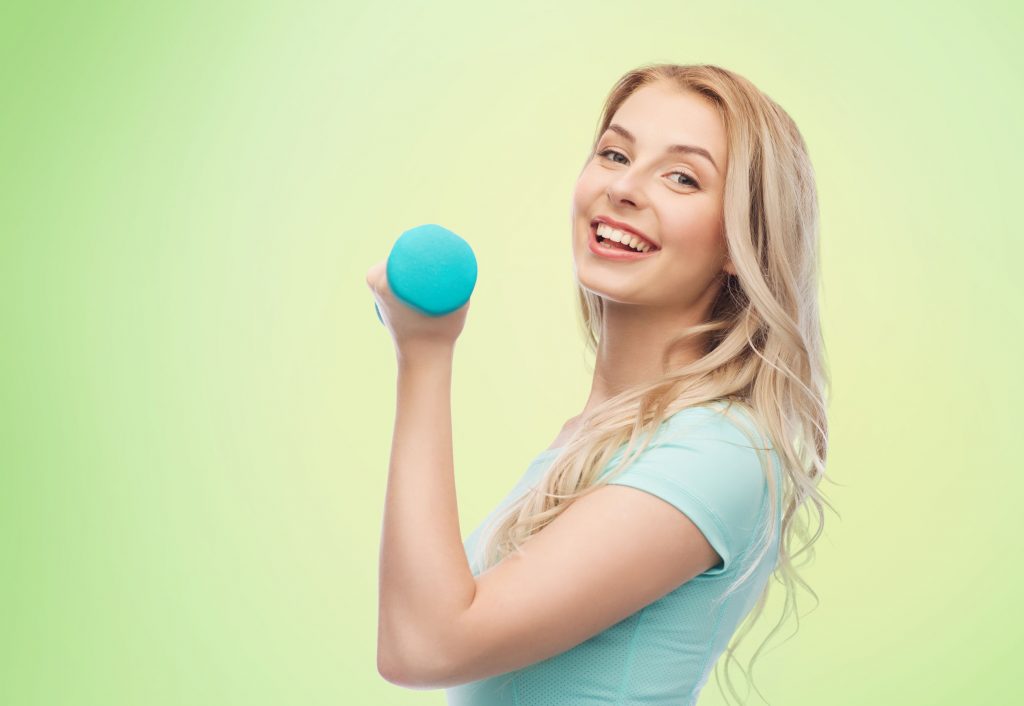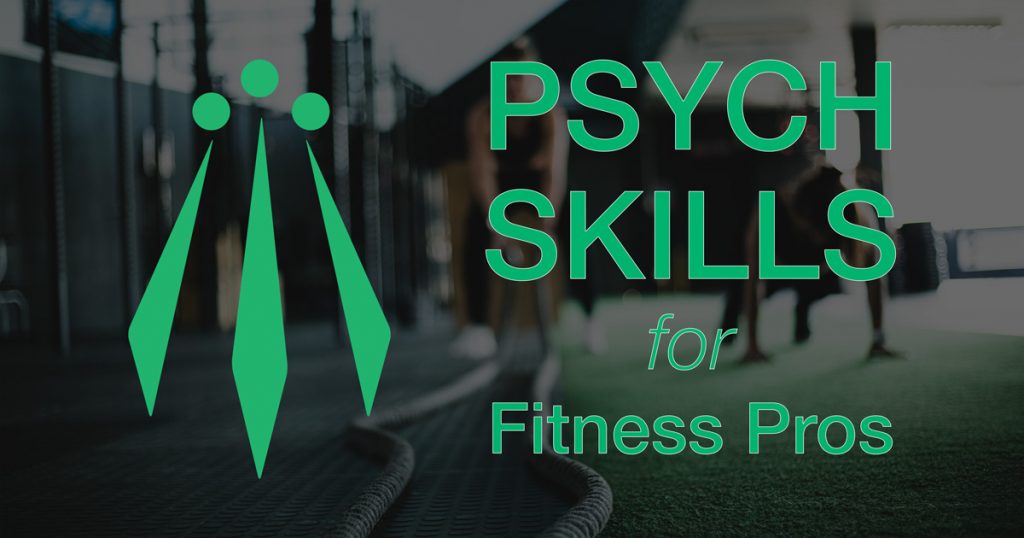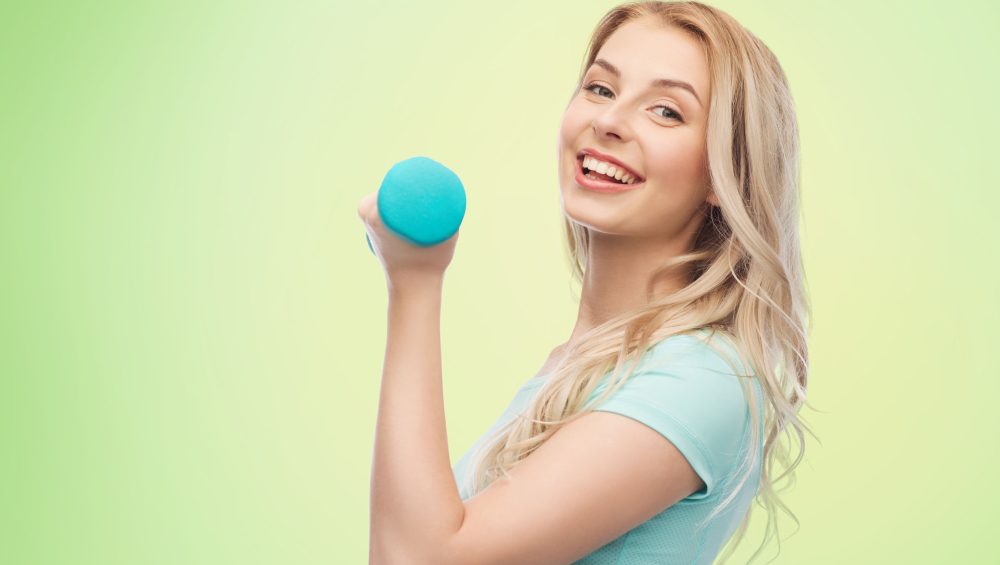NOTE: This is a blog I originally wrote back in 2017, but I’m repurposing it today because:
- It’s really fucking good.
AND
2. It matches well with the release of Psych Skills for Fitness Pros, my wife’s (Dr. Lisa Lewis), latest resource for personal trainers, strength & nutrition coaches, and physical therapists designed to improve their communication and motivational skills.
It too is really fucking good…;o)
This is the last week you’ll be able to purchase it at $100 off the regular price.
My Wish for Female Fitness: Less Talk About Less
“Why should I be fit?”
Ask a male that question and you’ll hear a bevy of terms and phrases ranging from “to get swole and jacked” to “to get swole and ripped.”1
Ask a female that question? Well, the bulk of them will have an entirely different orientation or framing of answers.

Most of the time we’ll see an avalanche of words like:
- Lean
- Slim
- Toned
- Thin
In other words: For many women the idea of being fit revolves around being LESS. Rather than embracing and accepting their body as something unique and worthy of its own admiration (regardless of size), many women are fixated on the notion that less is sexier.
Healthier.
Better.
This is in stark contrast to the psyche of their male counterparts. Peruse any magazine rack and you’ll immediately notice a different tone:
- Big
- Strong
- Mass
- Gain
Here, the goal is MORE.
My wife, Dr. Lisa Lewis, who speaks on this topic and phenomenon frequently, refers to this as a Growth Orientation.
Woman are (generally) programmed to strive for less. By contrast, men are (generally) programmed to strive for more.2
“Striving to Be More, Instead of Wanting to Be Less”
Rather than being seduced into the rabbit hole of incessant “weight loss,” which, lets be honest, is the quicksand of the industry – slowly swallowing any semblance of enjoyment and fun out of fitness – I’d like to see more women gravitate towards something I refer to as 3×52.
Instead of a goal of weight loss and steady diet of disappointing results (and Paleo recipes that taste like old lady fart sprinkled with sawdust), the ultimate goal, as far as my own female clients, is to get them in the gym 3 days a week, 52 weeks a year…aiming for CONSISTENCY and PERFORMANCE.
I find if I can get them “married” (for lack of a better term) to finally conquering a chin-up, or deadlifting their bodyweight for reps, or, I don’t know, beating Xena Warrior Princess in a street fight, the aesthetic goals they’re chasing (often saturated with a tone of weight loss) just kinda-sorta…happen.
Better yet…they forget about them altogether, and just want to crush weights.
It’s All About Motivation
This is where my wife Lisa would chime in with her expertise, but I’m going to take as stab at it.
In the seminal book, “Intrinsic Motivation and Self-Determination in Exercise and Sport,” a light read (said no one, ever), motivation is described as:
“….[is] an internal state that energizes and drives action and behavior and determines its direction and persistence.”

The fitness industry, as it relates to women (exponentially so), is very much fixated on extrinsic factors: external appearance, sex appeal, being less.
This isn’t entirely wrong or altogether a bad thing. I understand that for many women looking at magazine covers like the one above, or perusing any number of Instagram accounts of fitness celebrities can be motivating.
However, it’s also very superficial.
Happiness, it would seem, is tethered to one’s waistline or ability to look a certain way society (or magazine editors) deems attractive.
This is not healthy.
And, funnily enough: I can’t tell you how many times I’ve heard stories and have seen personally people (both men and women) who have sacrificed a lot to look a certain way.
They give up social events and carbs (CARBS!) in pursuit of six-pack abs or tank-top triceps, only to attain the goal and be like, “huh, that’s it? Well, that’s a bunch of bullshit.”
The moral of the story, however, is to help your clients find and recognize INTRINSIC factors that will fuel their motivation to get fit and healthy. And do so long-term.
The difference and power of intrinsic factors is that they have less to do with external appearance and sex appeal and more to do with finding value in other ways, like:
- How exercising makes someone feel.
- Exercise matches their values and beliefs.
- Someone feels exercise is an important part of their personality, and makes them the best version of themselves possible.
You do that – help someone seek intrinsic motivation – and Tracy Anderson will have less of an influence.
Yay.
So, Uh, Tony, How Do We Enhance Motivation?
Good question.
1. Facilitate Intrinsic Motivation
This is where being a good, intuitive coach brings value. I’m a strength guy and love the barbell lifts, so it stands to reason I have a little bias towards them.
While I’m at a stage in my career where the majority of women who reach out to me know what they’re getting themselves into – a healthy dose of deadlifts and Tiesto – I also recognize that for some, I can’t force feed anything.
If someone would rather jump into a live volcano than perform a back squat…what good is it to force them to do back squats. That’s a sure-fire way to crush motivation.
It’s my job, then, to do the best I can to match their goals with shit they’ll actually want to do. Maybe instead of back squats we perform Goblet squats, or a crap-ton of sled work?
More to the point, if I can identify their strengths and talents – and utilize things that make them feel like a rock star – we’re in a good place.
2. Highlight Ways to Grow
Building autonomy should always be the goal with any client. You should want them to eventually leave.
Listen to a client’s goals and ALWAYS create plans based on those goals…..always. Allow room for goals to change, be modified, or even abandoned. Everything is negotiable.
A large reason why so many people fail to get results – even when working with a trainer – is that the trainer sucks balls. He or she never takes the initiative to provide education and feedback to increase competency in their clients.
I don’t feel there is nefarious intent or that such a thing is done purposely much of the time, but it does speak to the pure laziness of some trainers and coaches.
I know when I start to work with a new client (female or otherwise) I go out of my way to explain everything, why we’re doing a certain exercise, it’s benefits, and why it will help get them closer to their goals.
Moreover, I make sure to meet her where she’s at.
This kinda mirrors what I said above – I.e., not force feeding YOUR preferences onto your clients – but a crucial component of sustained motivation is competency. This is why I rarely have someone – male or female – straight-bar deadlift on Day #1.
Clients want to feel as if they know what the hell they’re doing, that they can do “stuff,” and that they don’t look foolish.
Foolish
Less Foolish
Look, a Demon Kitten (Which Has Nothing to do With Anything)

3. Build Relatedness
Your relationship & rapport with clients is an essential element of success. Be mindful of your clients’ social needs in regard to their fitness.
For example, if you partake in semi-private training as I do, and you’ve just started with a new female client and you know she’s a bit timid and self-conscious…it’s probably not a bright idea to pair her alongside your male client training for his next powerlifting meet.
Another example, especially when training female clients, Beyonce Radio on Pandora is like female relatedness catnip. It never fails.
Never.
Less Talk About Less
Taking all of the above in consideration will, I feel, help with all the “less” talk that permeates female fitness.
No! We want more.
More confidence, more autonomy, more competence, more muscle (because, why not?), more cowbell, more Beyonce.
Psych Skills for Fitness Pros

What burns us out as coaches isn’t sets/reps, breaking down deadlift technique, or writing a metric-shit ton of training programs (although that last one can be debated). No, what grinds our gears are our…
…clients!
They can be inconsistent, unmotivated, drop off the face of the Earth only to show up three weeks later wondering why they’re not getting results, have poor boundaries, smell really bad, any number of things.
All of which require communication skills to deal with.
Creating a long-lasting career in fitness, one that rewards you with loyal clients who stick around, isn’t about how much you lift, how great your butt looks on Instagram, or how much you spend on Facebook for advertising.
It’s about creating a CONNECTION with your clients.
Psych Skills for Fitness Pros will help you accomplish that.
- 12+ hours of content – webinars, quizzes, interviews – you complete at home at your own pace.
- Earn CEUs via NSCA and NASM.
- Gluten free.
Remember: This is the last week to purchase it on SALE, so act now while you can.




